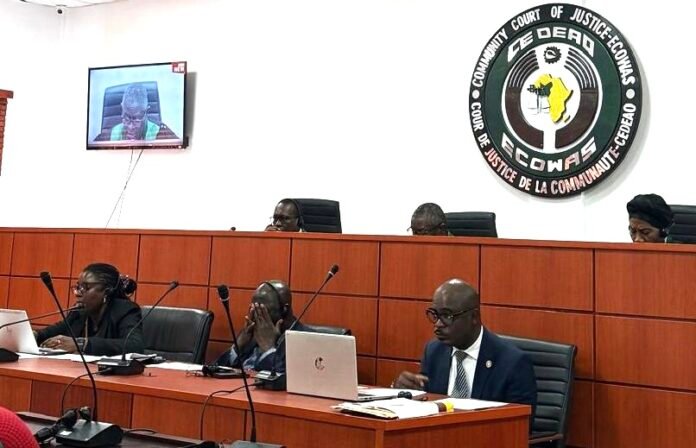The President of the ECOWAS Court of Justice, Justice Ricardo Gonçalves, has called on governments of ECOWAS member states to fully recognise the Court’s authority and cooperate in enforcing its judgments.
Speaking on Thursday in Abuja at the opening ceremony of the ECOWAS Court’s 2025/2026 Legal Year, themed “ECOWAS Court and International Law: Expanding Access and Navigating Contemporary Challenges,” Justice Gonçalves lamented that only about 30 percent of the Court’s decisions have been enforced. He described the persistent non-enforcement of judgments as one of the Court’s most serious challenges.
“Some of the difficulties we have encountered relate to the continued non-enforcement of the Court’s judgments,” he said. “Our processes should not end with the filing of an application and the delivery of a verdict — these decisions must translate into meaningful action. What credibility would a court have if its decisions are not enforced? The trust of our citizens depends on this.”
He stressed that citizens from across the region who approach the Court for justice deserve to see its rulings implemented promptly and in good faith. Gonçalves, therefore, urged ECOWAS institutions and member states to honour their commitments by respecting the Court’s authority and ensuring full enforcement of its decisions.
Despite financial and institutional challenges, the Court achieved notable progress over the past year. Justice Gonçalves revealed that the Court registered 34 new cases, held 79 sessions, delivered 54 judgments, and currently has 112 cases pending.
He also highlighted the Court’s adoption of an electronic case management system and the introduction of secure virtual hearings, which he said have enhanced access to justice and reduced logistical barriers. Another milestone, he noted, was the launch of the Court’s first-ever Moot Court competition for Nigerian university law students — an initiative set to expand to other institutions across West Africa.
Looking ahead, the ECOWAS Court President identified two key priorities for the new legal year: expanding access to justice through the full implementation of electronic case management and strengthening collaboration with national courts, professional associations, and civil society groups.
“Efficiency, transparency, and accountability will remain at the heart of our operations,” he added.
According to local media, the annual Legal Year ceremony provides an opportunity to reflect on the Court’s achievements, challenges, and future prospects.
Source:Africa Publicity








